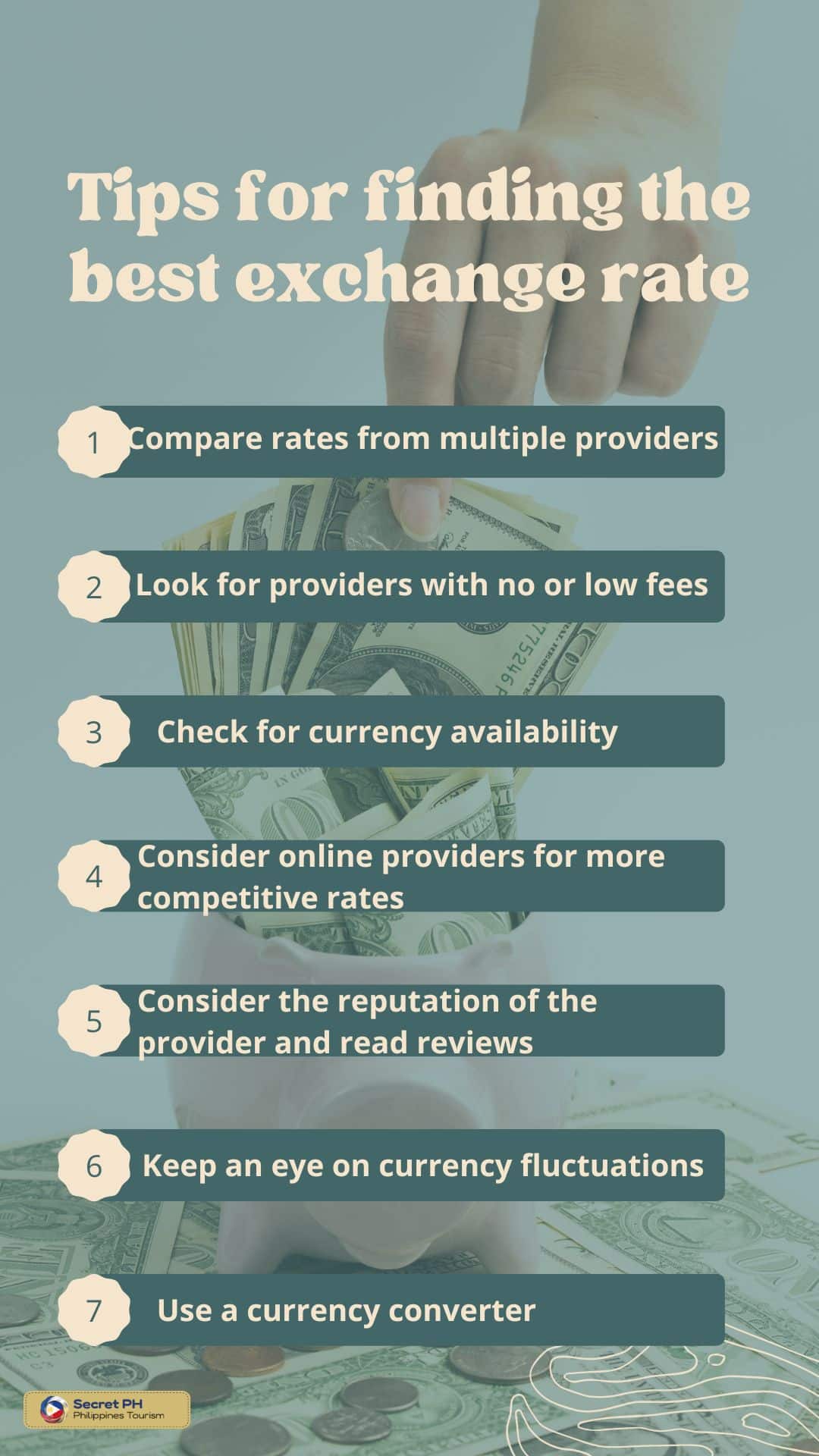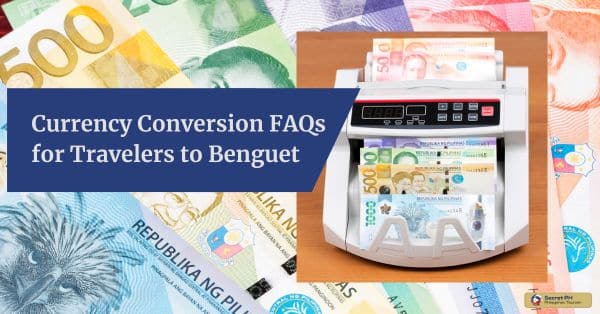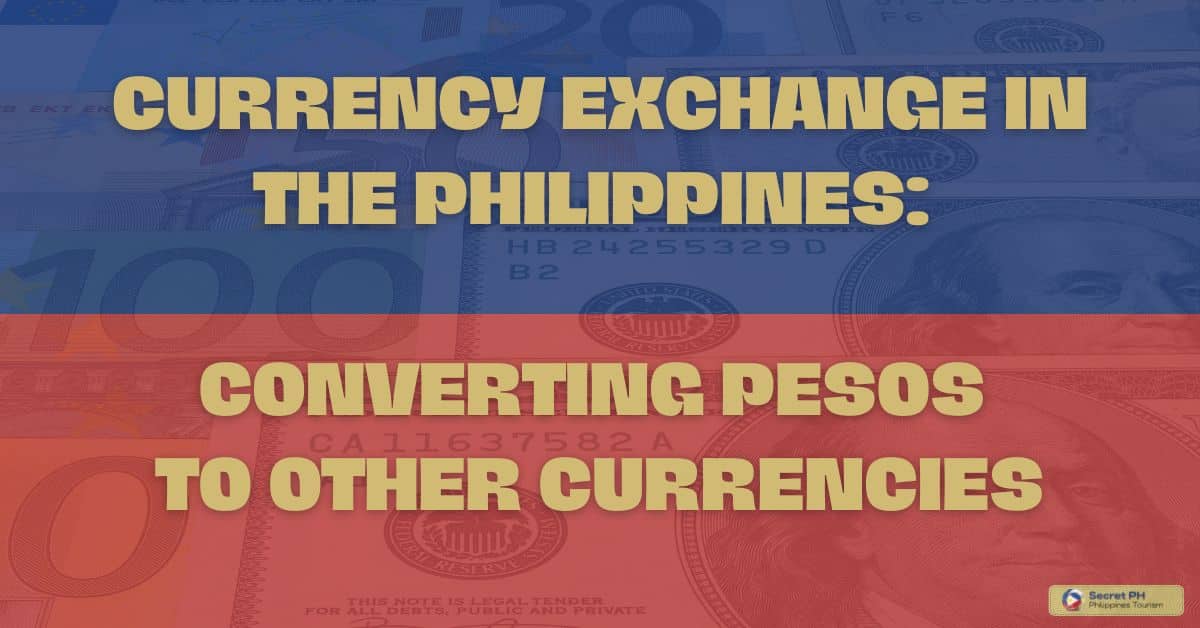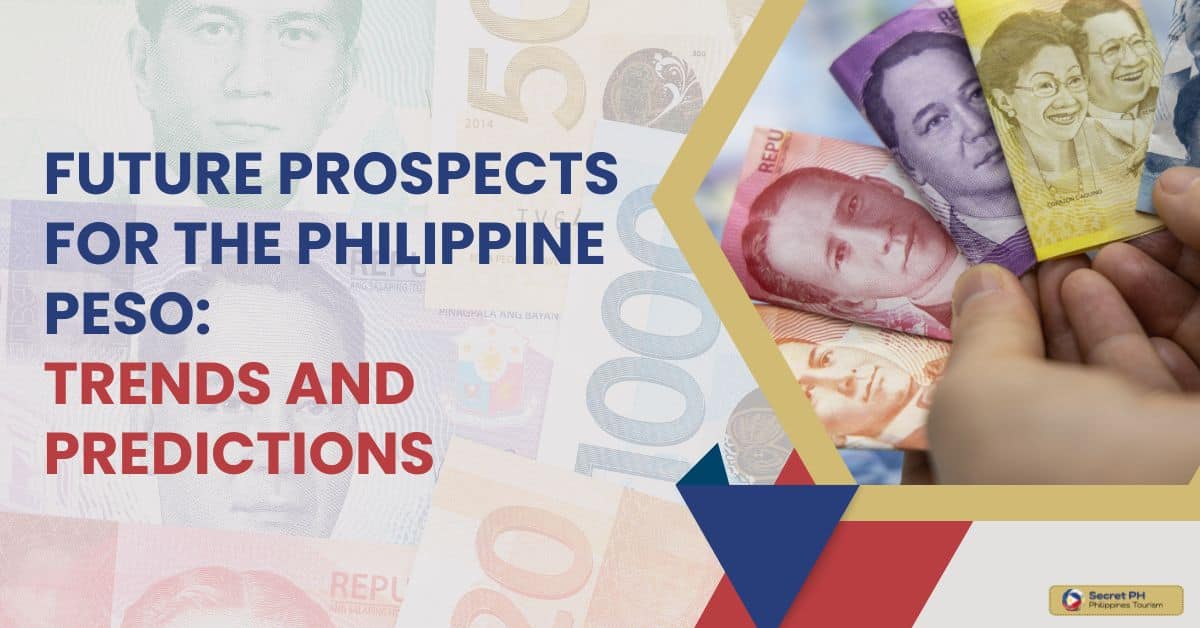Are you planning a trip to the Philippines or regularly sending money to the country? If so, it’s important to understand how to make the most of currency conversion. The exchange rate can greatly impact how much money you end up with, and without proper planning, you may end up losing out on valuable funds.
In this blog post, we will dive into the world of currency conversion in the Philippines and provide you with the tools and strategies you need to maximize your money. From understanding exchange rates to avoiding hidden fees, we’ve got you covered. So, whether you’re a traveler, a business owner, or a remitter, this guide is for you!

Importance of Currency Conversion in the Philippines
The Philippines is an important player in the global economy, and its currency conversion rates have major repercussions for its businesses and individuals. Knowing and understanding the importance of their currency conversions is vital to staying competitive in the ever-changing international marketplace.
From entrepreneurs looking to expand their businesses across borders to everyday citizens making purchases overseas, having a grasp on currency conversion enables those involved in such activities to better understand the activity’s financial implications and make better decisions. Thus, being familiar with the mechanisms behind currency conversion is essential for anyone operating within the Philippine economy, enabling them to craft strategies that can contribute to overall success.

Understanding Exchange Rates
Understanding exchange rates is important when it comes to currency conversion in The Philippines. It allows travelers and businesses alike to accurately assess the value of their money and make decisions on how best to convert funds into a local currency. Understanding exchange rates also provides clues as to the economic climate, both locally and across nations.
This allows budget forecasting, ensuring that travelers have enough funds while abroad, and corporations can accurately gauge potential investments. Understanding and having access to reliable currency conversion is not only beneficial for staying within budgets but also to extract maximum returns on investments for future successes.
Explanation of what exchange rates are and how they are determined
Exchange rates are a measurement of the price for one currency to convert into another and largely determined by the supply and demand for each currency, as well as political factors such as central bank decisions or external factors like economic conditions worldwide. Understanding how exactly exchange rates form can be complex, but it is important to grasp their concept when dealing with multiple currencies on an international level.

Exchange rates
The value of one currency in relation to another currency. Determined by supply and demand, economic and political factors.
Floating exchange rate
Floating exchange rate is a type of exchange rate system where the value of a currency is determined by the market forces of supply and demand.
Fixed exchange rate
Is determined by government intervention, it is set and maintained by central banks at a specific value, regardless of market forces.
Direct quote
Is an exchange rate in which the domestic currency is the base currency. It shows how much foreign currency is needed to purchase one unit of domestic currency.
Indirect quote
Is an exchange rate in which the foreign currency is the base currency. It shows how many units of domestic currency is needed to purchase one unit of foreign currency.
Cross rate
Is an exchange rate between two foreign currencies. It is calculated by using the direct or indirect quotes of the two currencies against a common third currency.
Interbank rate
Is the rate at which banks trade currencies with each other. It is used as a benchmark for determining exchange rates for commercial transactions and it is considered to be the most accurate representation of the current market conditions.
Tourist rate
Is the rate that is offered to tourists when they exchange their money. This rate is often less favorable than the interbank rate, as it is intended for consumers rather than commercial transactions.
Factors that can affect exchange rates
Exchange rates influence global demand and supply, heavily impacting businesses that are exposed to currency fluctuations. Understanding the economics behind exchange rates and the main drivers of their movements requires careful research which examines the various elements that create market instability.
Amongst these driving forces are central bank policy, inflation, government deficits, economic growth, political stability, global trade decisions and speculations from investors amongst other things.

- Economic indicators: Gross Domestic Product (GDP) growth, inflation, and interest rates all play a significant role in determining exchange rates. A country with a strong economy and low inflation will typically have a stronger currency.
- Political stability: Government policies, elections, and war can all have an impact on exchange rates. Countries with political instability may see their currency weaken as investors become less confident in the country’s stability.
- Speculation: Investors buying and selling currencies can affect exchange rates. When there is a lot of speculation in a currency, it can lead to large fluctuations in its value.
- International trade: The balance of payments and trade agreements can also affect exchange rates. Countries that have a large trade deficit may see their currency weaken as they need to import more than they export.
- Natural disasters: Natural disasters such as hurricanes, earthquakes, and floods can disrupt economies and affect exchange rates.
- Currency interventions: Central banks may intervene in the market to buy or sell their currency in order to stabilize or adjust the exchange rate.
- Commodity prices: the price of commodities such as oil, gold, and wheat can affect exchange rates. A rise in commodity prices can cause the currency of a commodity-producing country to appreciate.
Choosing the Right Exchange Rate Provider
Choosing the right exchange rate provider can be a tricky endeavor and it is important to look for providers who have the most experience in the industry. Exchange rates are constantly changing, so it is essential to find a provider that not only keeps up with the most recent trends, but also offers accurate and reliable global money transfer services. When evaluating prospective providers, make sure they offer secure transactions, competitive rates, and provide sufficient customer service support.
Comparison of different providers and their rates
To make an informed decision, it is essential to compare and contrast each provider by considering their features such as exchange rate, fees, and other services offered. Ultimately, every consumer will possess different needs and preferences when it comes to finding a suitable exchange rate provider. Evaluation of different providers’ rates can therefore become useful in finding one that provides the best deal for you.
| PROVIDER | DESCRIPTION | RATE |
| BDO | BDO is one of the largest banks in the Philippines, with a wide network of branches and ATMs. They offer competitive exchange rates for USD to PHP transactions. | 1 USD = 50.50 PHP |
| BPI | BPI is another large bank in the Philippines, with a similar network to BDO. They also offer competitive exchange rates for USD to PHP transactions. | 1 USD = 50.55 PHP |
| Czarina | Czarina is a popular foreign exchange dealer in the Philippines, known for their competitive rates and fast service. They offer exchange for various currencies, including USD to PHP. | 1 USD = 50.60 PHP |
|
Tivoli Money Exchange |
Tivoli stands out from its competitors since it now engages in cryptocurrency. The shop facilitates over-the-counter trading and withdrawals of most major cryptocurrencies through its BSP-accredited virtual currency exchange partners. Accepted cryptos include Bitcoin, Tether, Ethereum, Binance Coin, XRP, Dogecoin, Polkadot, Cardano, and more. | 1 USD = 50.65 PHP |
Note: Exchange Rate may vary due to particular currency, as well as economic and political factors.
Tips for finding the best exchange rate
Choosing the right exchange rate provider is one of the most important tips when it comes to finding the best exchange rate. Be sure to research different providers to find one that you can trust, with competitive fees and low conversion rates. Before making any transfers, compare available options, fees, guarantees and also make sure you are aware of any restrictions or prohibitions related to their service.

- Compare rates from multiple providers: Don’t settle for the first exchange rate you find. Compare rates from multiple providers to ensure you are getting the best deal.
- Look for providers with no or low fees: Some providers charge additional fees on top of the exchange rate, so make sure to find a provider that has no or low fees.
- Check for currency availability: Make sure that the provider you choose offers the currency you need.
- Consider online providers for more competitive rates: Online providers often have lower overhead costs and can offer more competitive rates.
- Consider the reputation of the provider and read reviews: Look for a provider that has a good reputation and read customer reviews to get an idea of their level of service.
- Keep an eye on currency fluctuations: Currency exchange rates fluctuate frequently so keeping an eye on currency fluctuations can help you time your exchange for the best rate.
- Use a currency converter: Use a currency converter to compare rates from different providers.
Maximizing Your Money through Currency Conversion
Converting one currency to another can sound like a complicated process, but it doesn’t have to be. Maximizing Your Money through Currency Conversion is a guide that takes you step-by-step through the principles of converting currencies.
It looks at different types of exchange services, how to convert with the best exchange rate, and the risks involved in currency conversions. It is designed for both first-time users who are curious about switching currencies, as well as experienced traders looking for ways to improve their money management strategies.
Strategies for making the most of currency conversion, such as timing your conversions and using credit cards
To ensure you make the most of currency conversion, it’s important to consider two key strategies: timing the conversion and using credit cards.
Timing the conversion means looking at the exchange rate in both countries and watching for favorable differences, whether short-term or long-term.
Using credit cards when possible is another way to maximize gains. Because they typically offer competitive rates with fewer fees, you’ll have more money in your pocket rather than invested in transaction fees.
How to avoid common pitfalls, such as hidden fees
Maximizing your money through currency conversion can be a great way to expand the purchasing power of your travel budget. However, there are potential pitfalls to beware of such as hidden fees. To avoid them, you should always look for highly regarded currency exchange services that have transparent pricing with no hidden fees and clear terms and conditions.
Additionally, make sure to compare different providers to ensure you’re getting the best deal available. If done properly, making the most of currency conversion can help ensure your trip is maximized into an experience of a lifetime.

In Conclusion
The Philippine peso is not as widely traded as other major currencies, which can make it difficult to get the best rate when exchanging foreign currencies. It’s important to remember that banks and money changers charge rates that differ from one another, so shop around and do your research before making any transactions.
Additionally, be sure to read the service agreement carefully before signing anything and double check calculations on receipts. Finally, save all documents related to your currency conversion; this will ensure you can reference them if there are discrepancies or disputes later down the line. With some caution and foresight, travelers in the Philippines can make their money go further with successful currency conversions.








